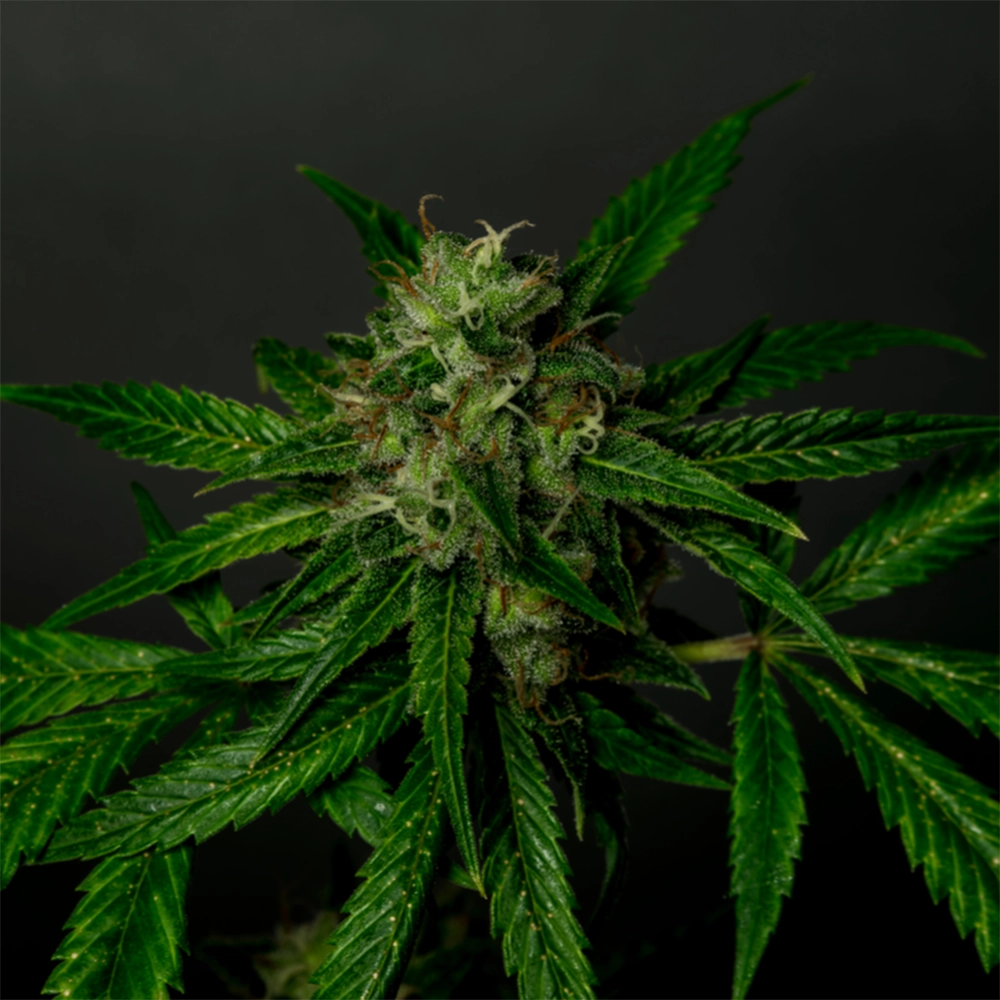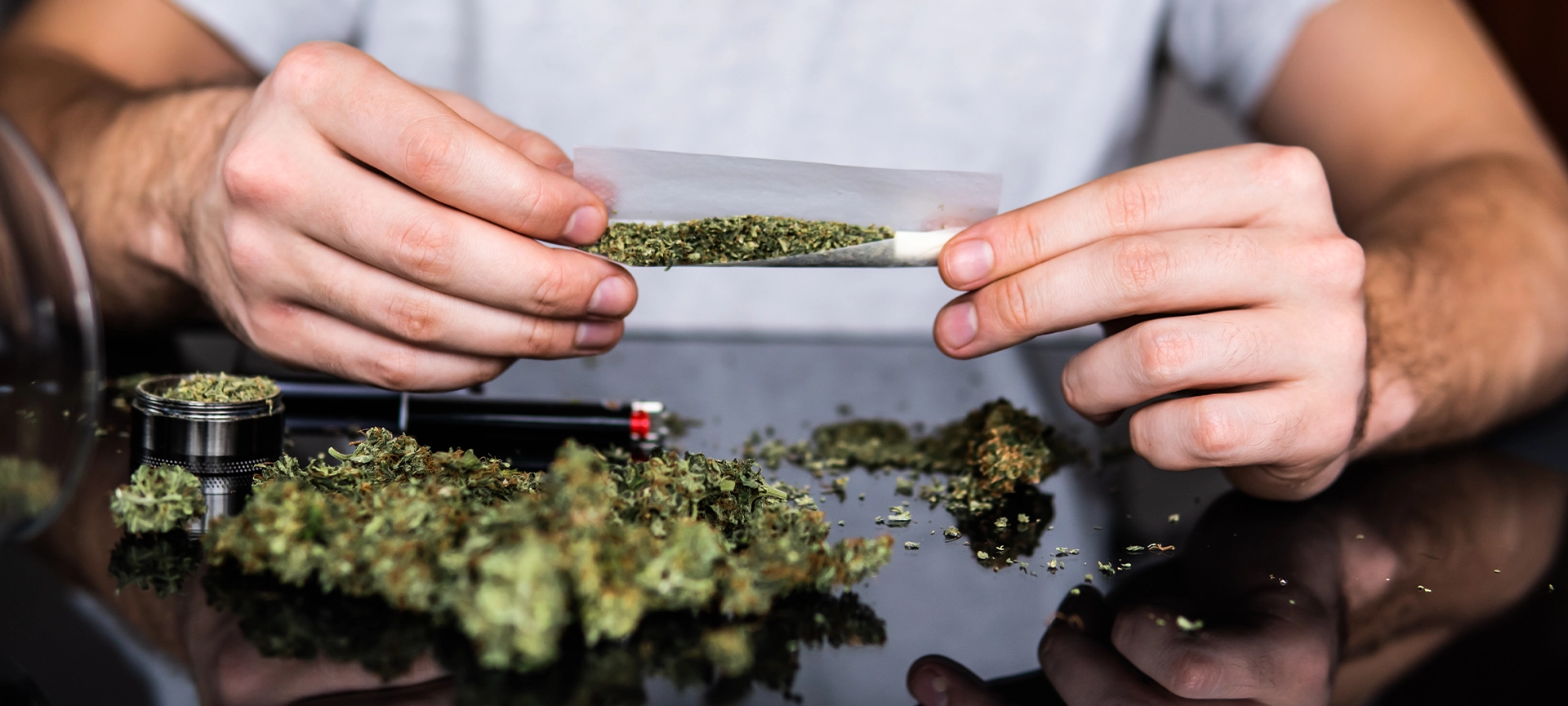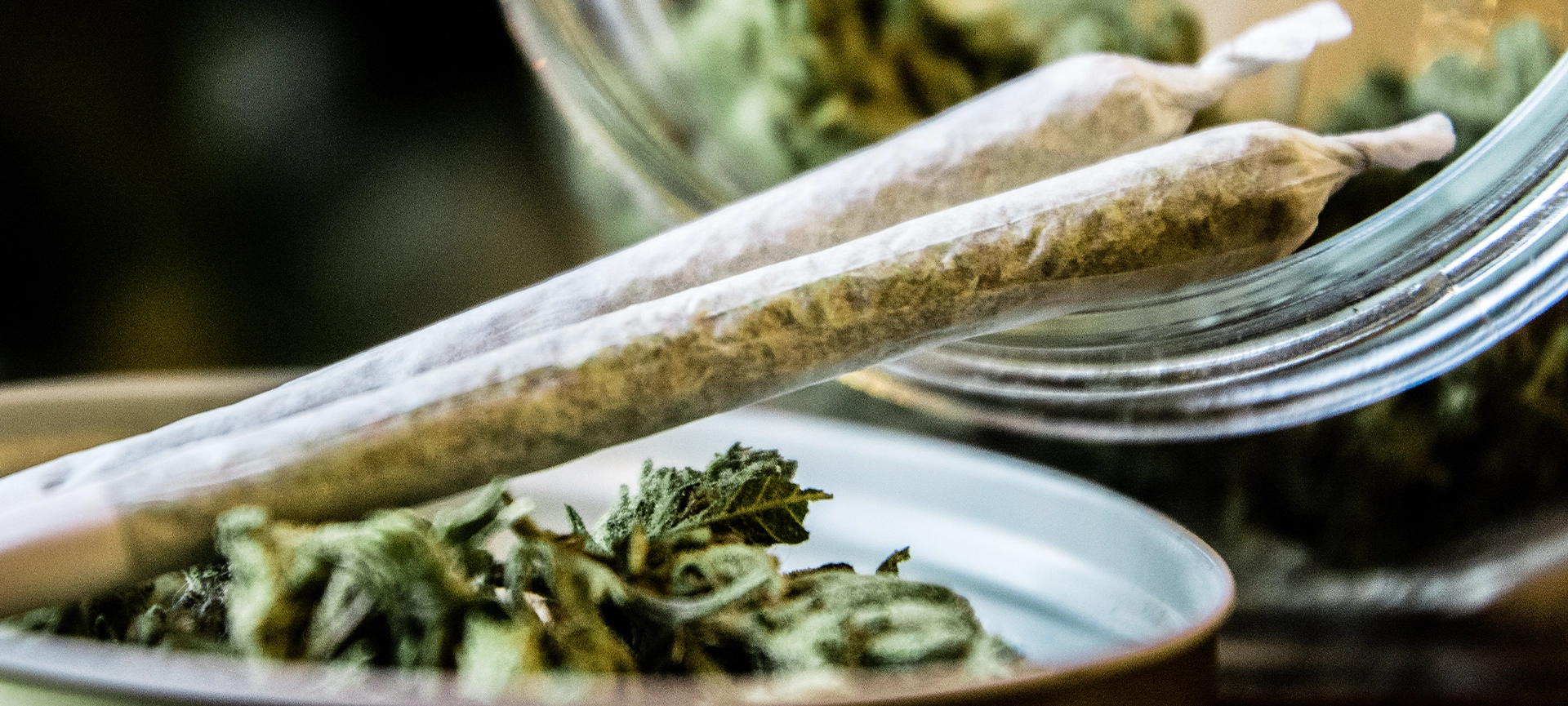Overcome Marijuana Addiction
The question of how to overcome marijuana addiction has many answers. Marijuana is one of the most controversial drugs in the world today. Many studies have been conducted as to the benefits of using marijuana for medicinal purposes. Many countries have legalized its use, and more people can access marijuana to use medically or recreationally. Nevertheless, marijuana abuse and addiction remain a problem. If you feel you have a marijuana addiction and want to stop using it, we will discuss here how to overcome marijuana addiction. But first, we will understand its effects on the body, the signs of addiction, and finally, how you can kick the habit.

What is Marijuana?
When we say marijuana, it pertains to the dried seeds, stems, flowers, and leaves of the Cannabis indica or Cannabis sativa plant. Cannabis has a chemical called THC which can produce mind-altering effects on the person using marijuana. Weed, which is another term for marijuana, is the most commonly used illicit drug, especially by young people in their middle and high school years.
Marijuana’s THC’s content has been steadily increasing in the past decades. If you just started using marijuana, this can mean higher exposure to THC. Consequently, there is also a greater chance that you may have harmful reactions from it. Higher THC in marijuana may also explain why there is a rise in the number of people being sent to the emergency room because of marijuana use.
And since marijuana edibles have also become popular, many people are choosing to consume the drug this way. However, it takes a longer time to digest and for the person to feel the high. It is for this reason that many consume more of it so that they can experience the effects sooner. But doing this also leads to harmful and dangerous results. The higher THC in marijuana can also create higher chances of addiction in people who consume it at high doses.
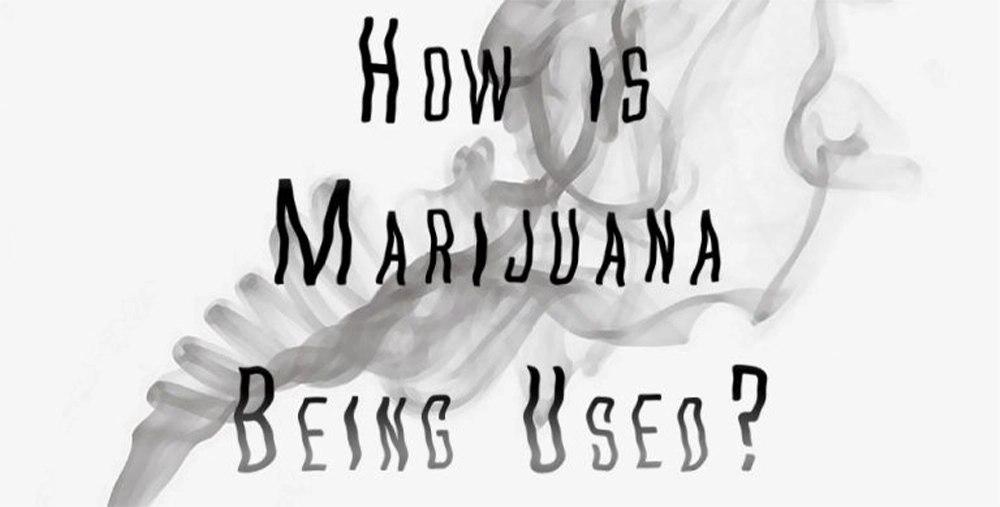
How is Marijuana being Used?
Marijuana users smoke it in joints or hand-rolled cigarettes. They may also use water pipes called bongs. Smoking marijuana in blunts or in cigars that have been emptied and refilled with marijuana is also a way to use. Some users don’t want to inhale the smoke so they use vaporizers.
With vaporizers, the active ingredients such as THC are pulled and their vapour is collected in the storage unit. Marijuana may also be mixed with food like candy, cookies, and brownies. Some may even brew it just like tea.
Another way that marijuana is being used is eating or smoking various forms of resins that are THC-rich. This method is called dabbing. There are different forms to these extracts such as honey oil or hash oil, wax, and shatter.
While dabbing is popular these days, this method can deliver huge amounts of active ingredients like THC to the user’s body. There have been a number of people sent to the emergency room because of this.
Apart from that, another danger when it comes to preparing marijuana extracts is that you need to use butane or lighter fluid. There have been incidents where explosions and fires broke out and people were seriously burned. Accidents can happen because of this method of getting the extracts of marijuana and doing it at home without proper and ample safety precautions.
Related article: How to Quit Smoking Weed
Harmful Effects of Marijuana Use
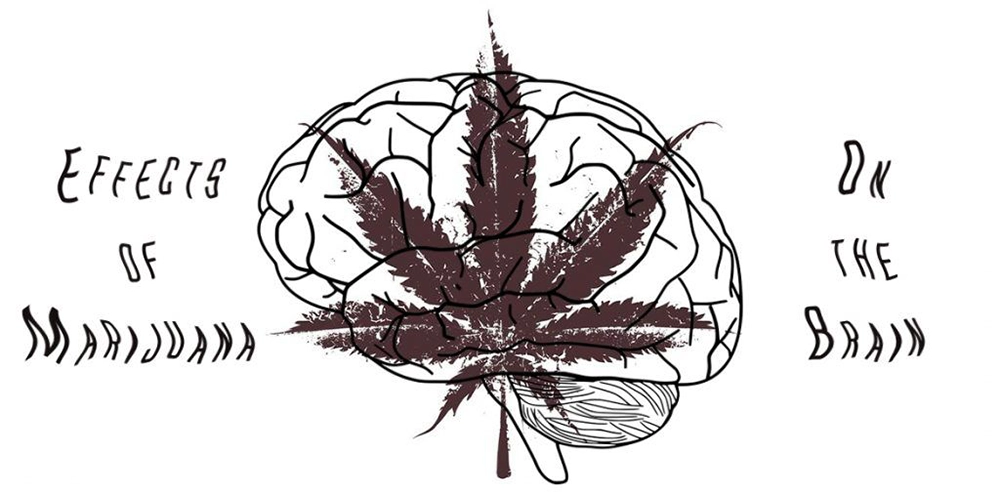
If you’re wondering why you need to learn how to overcome marijuana addiction, think about the harmful effects. People who abuse weed will feel the need to sustain that maximum high. In order to do so, they inhale the smoke more deeply and hold it in their lungs for a longer period of time.
It irritates the lungs which may lead to asthma attacks, bronchitis, and chronic cough. The effect of smoking weed in pregnant women affects the unborn baby and may cause problems such as premature birth and abnormal size.
In worse scenarios, marijuana, when taken in higher and larger dosage, can also result in toxic psychosis and hallucination that makes most people paranoid. It affects your concentration, reaction to stimuli, and your coordination, making it dangerous for you to drive a car and even ride a bike.
Effects of Marijuana on the Brain
When marijuana is smoked, the THC passes from the user’s lungs into his bloodstream. Blood, then, takes the chemical to his brain as well as the other organs in the body. With smoking marijuana, the effects can be felt after 30 minutes up to an hour. It is a slower way for the THC to be absorbed compared to when the extract is consumed by eating or drinking.
THC affects particular brain cell receptors. These receptors react to natural chemicals similar to THC. Such chemicals are important in the normal development and functioning of the brain.
Using marijuana can over-activate areas of the brain that have huge amounts of those receptors which, in turn, causes the person to feel high. Here are other effects that marijuana users experience after using the drug.
- Mood changes and impaired memory
- Altered senses and inability to focus
- Difficulty in motor skills and body movement
- Psychosis, delusions, and hallucinations
Marijuana use is also known to affect brain development, especially when the user begins at an early age such as in their teenage years. This drug can affect their thinking, learning functions, as well as their memory.
Marijuana can affect the way the brain connects to different parts where these functions are necessary. Ongoing studies are looking into the other long-term effects of marijuana and also if these changes in the brain are irreversible.
Physical Effects of Marijuana Abuse
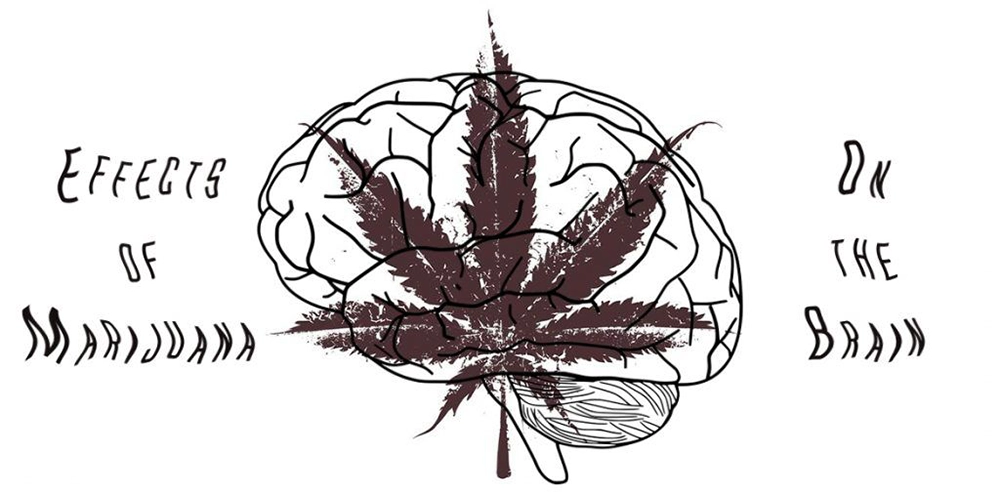
Marijuana use can affect a person in several ways, especially for regular users. Here are some of the physical effects of continuous marijuana use.
Breathing difficulties
The smoke from marijuana can irritate the lungs. Users who smoke frequently can experience similar breathing difficulties as people who smoke cigarettes and tobacco.
Some of the problems with breathing include daily phlegm and coughing, lung illness and lung infections. Researchers are still studying the effects of marijuana smoke and the development of lung cancer.
Risk of heart attack
Consuming marijuana can increase your heart rate and it can last for up to three hours. This increases the risk of a heart attack. People who have existing heart problems and use marijuana regularly may have a higher chance of suffering from a heart attack.
Child development in pregnant women
There has been a popular belief that marijuana can help pregnant women deal with their nausea. However, medical experts are firm in their warning against it. Marijuana use in pregnant women is known to be linked to low birth weight. Such babies are also observed to have behavioural and brain problems.
When a pregnant woman is a marijuana user, then there may be effects on the way that the brain of the fetus develops. When these babies grow up, they are observed to have problems with memory, problem-solving, and attention. Even THC from breast milk can affect the child’s developing brain. The studies regarding these effects of marijuana on babies are still ongoing.
Vomiting and nausea
With regular and long-term use of marijuana, you may develop a condition called Cannabinoid Hyperemesis Syndrome. This condition causes a person to experience a regular cycle of intense vomiting, nausea, as well as dehydration. There have been cases when medical attention has been necessary to address this condition.
Related article: Do Marijuana Addiction Treatments Work?
[activecampaign form=1]
Mental Effects of Marijuana Use
When a person has been using marijuana for a long time, it is possible that he or she may develop a mental illness and other mental conditions. They may experience hallucinations and paranoia.
For people who have schizophrenia, their mental condition may get worse with regular marijuana use. Other mental effects include anxiety, depression, and even suicidal thoughts in young people who use marijuana frequently.
Marijuana’s Effects on a Person’s Life
When comparing people who don’t use marijuana to those who use it heavily, studies state that users have low life satisfaction, poor mental health, and poor physical health. They also experience worse relationship problems with their family and friends.
For students who use marijuana, they are more likely to have academic challenges and drop out of school. For professionals, marijuana use is often linked to tardiness, absences, accidents, as well as injuries in the workplace.
The marijuana usage numbers in Canada certainly point to a need for help with overcoming marijuana addiction. Here are some statistics to back that up.
- In 2020, about 27% of Canadians millennials smoke marijuana regularly.
- Similarly, 16% of adult females eat cannabis edibles regularly
- 18% of Canadians use recreational marijuana on a daily basis.
- 65.4% of marijuana users use Cannabis by smoking
These are not just numbers. They also have an influence on your life in the following way:
Overdose from Marijuana Use
A person can experience an overdose when he or she uses too much of the drug and the effects of it can be life-threatening. While there are no reports of adults or teens who had fatal consequences because of marijuana use alone, too much consumption of marijuana is known to cause uncomfortable and intense side effects.
People who used marijuana that have high THC have reported that they experienced paranoia and anxiety. Others had hallucinations, delusions, and other psychotic reactions.
Psychotic reactions can happen whether marijuana is smoked or eaten. But emergency medical staff have been seeing more and more cases of patients being admitted because of eating too much food containing marijuana.
Usually, young people don’t know much about the marijuana edibles and how long it takes before the effects kick in. In doing so, they eat more to get that high. Consequently, they experience intense reactions because they’ve taken too much of the drug.
Marijuana Use and Addiction
Using marijuana frequently can cause substance use disorder. This is a medical condition when you can no longer stop using a drug even if it’s already causing both health as well as social problems. When the disorder becomes severe, then it turns into an addiction.
There are marijuana users who’ve been using it for many years and try to quit. They experience some withdrawal symptoms which makes it a challenge to quit the drug use successfully. Here are some common marijuana withdrawal symptoms.
- Anxiety
- Cravings
- Decreased appetite
- Mood swings
- Problems with sleep
Is Weed Addictive?
Marijuana is addictive; it is an established fact. It comes in second place as the most popular and commonly abused substance in the world. There are 280 million people who are hooked into using weed which is more than 4% of the world population.
Based on poll data regarding the pending legitimization of marijuana in the country, there is an estimated number of 900,000 Canadians that will join the bandwagon of smoking pot, simply because it is legal and they are curious to try it.
The Truth about Marijuana
Weed is an antidepressant drug but it also has psychedelic effects when taken in higher doses. It helps to know that there are 2 classified types of marijuana that offer different effects, one is psychedelic and the other is depressant.
Other experts in the healthcare industry believe in the healing properties of marijuana. They continue to reiterate that the use of marijuana in proper dosage is therapeutic and could even save lives.
Why is Cannabis Drawing Concerns?
Despite the legal status and medical purposes of weed, it is quite difficult to turn a blind eye from the statistical data surrounding marijuana abuse and addiction.
According to the Canadian Centre for Substance Abuse, 28% of Canadian youth are using marijuana and this figure is significantly higher compared to the same group demographics in other developed countries.
Marijuana users, especially chronic ones, experience physical and mental health problems including brain and memory malfunctions. Pregnant women that used the drug have babies with negative development and behavioural issues.
Related article: Six Surprising Short-Term Effects of Marijuana
Marijuana for Medical and Non-Therapeutic Purposes
Clinical evidence emerged in support of the medical and therapeutic effects of weed and health professionals are also looking into that. The policymakers and medical regulatory bodies try to seek balance in the policies in order to cater to patient needs and reduce health risk. Most importantly, there is a pressing need to answer concerns about marijuana diversion and misuse.
Is weed addictive? Marijuana is an addictive drug and it could lead to tolerance and dependence that have drastic effects on the user. The impact of marijuana goes beyond the physiological and mental state.
Marijuana addiction also affects the social, financial, and personal aspects of the users. The Canadian government and private organizations are offering addiction recovery services for marijuana addicts.
Signs of Marijuana Addiction
Before you begin your journey toward recovery, it is first important that you acknowledge that there is a problem with your drug use. It can be difficult to assess yourself if you have an addiction.
Chances are that you’ll be in denial that there’s already a problem. To help you, here are some of the signs of marijuana addiction.
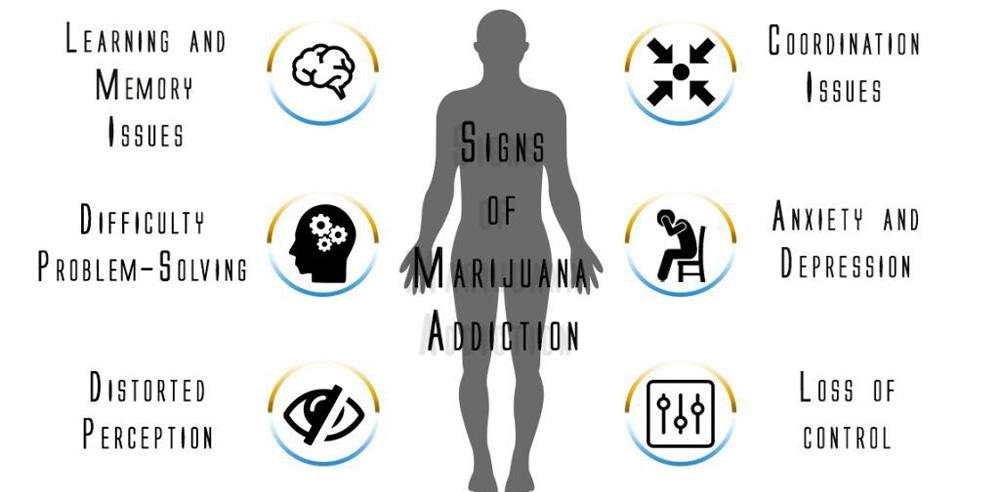
Tolerance Buildup and Withdrawal Symptoms
Marijuana is similar to other drugs in the sense that when you use it regularly, you’re bound to have a tolerance buildup. What this means is you’ll be needing higher doses of marijuana so you can experience the same kind of high as when you used it during the earlier phases of your drug use.
If you notice that you’re needing higher doses of marijuana just so you can get high, then that means that you’re building up a tolerance. When you attempt to stop using marijuana and you experience withdrawal symptoms, this can also mean that you are already addicted to this substance. Some withdrawal symptoms include anxiety, insomnia, irritability, and loss of appetite.
Increasing Use of Marijuana
There may be times when you just intend to take a few hits but then you end up smoking the entire joint. Try to observe how often this happens to you. If you think that you can no longer control how much marijuana you use, then it’s possible that you are already hooked to the drug.
You can’t Stop Using It
If controlling the amount of marijuana you use is difficult, then it’s most likely that stopping or quitting altogether is seemingly impossible. Even if you want to quit, you just can’t. At this point, you will need help to successfully get rid of the drug in your system and kick the habit of smoking or consuming marijuana.
Getting High Becomes Priority
How you spend your time is indicative of your possible dependence on the drug. If you spend a lot of your time getting high or waiting for the time when you’ll smoke another joint or looking for your drug of choice, that is a clear and obvious sign that you are addicted to it.
When your drug use becomes your priority and it begins to eat up a big chunk of your time, it’s vital to seek help and start marijuana addiction treatment.
You may also notice you’ve stopped doing the activities you once enjoyed. This may include recreational outings, playing sports or spending time with your loved ones. Instead, you spend your time with people who are also using marijuana so that you can get high together and feel that you’re having a good time.
Work or school can also become affected. Since using marijuana has become your priority, you no longer give importance to other things in your life such as your job or attending your classes. This can have very serious consequences down the line such as failing your courses or getting fired from your job.
You Use Marijuana to Deal with Problems
Think about the way you’re using marijuana. Have you been using it to deal with your problems? When you have bad grades or problems with your boss or even relationship issues, do you feel your only option is to try and get high? If this is the case then you’re getting deeper into your marijuana use and addiction.
Another way you can identify that you’re addicted to marijuana is if you depend on it to feel relaxed. If you take weed before starting work or doing anything creative or other tasks, then it’s a clear sign that you have developed a heavy dependence on it and you are already addicted to the substance.
Preferring Activities that will Get You High
When you start to evaluate your relationships with other people and your activities with them based on your chances of getting high, then you are choosing your bad habit over real and lasting relationships with your loved ones.
Also, ask yourself if you’ve been able to take on your daily responsibilities. Look around your house and see if you’ve cleaned it lately or if the dishes have been washed. If the place is dirty and disorganized, then you haven’t been paying attention to these details because your mind is too focused on getting high.
How to Overcome Marijuana Addiction
Marijuana can be just as addictive as consuming alcohol. About 10% of marijuana users can get addicted to it and they will eventually find it difficult to control their use of the drug. If you’re looking to overcome marijuana addiction, here’s what you need to do :
Figure out why you want to quit marijuana
The idea of being free from marijuana addiction sounds great to many people. However, without a reason to break free, achieving every other step on how to quit marijuana becomes harder than it should be.
Before starting any program, treatment or medication, ensure you are clear on what actually is motivating you to go ahead with the process. In the long run, that reason will help spur you to add more days to the count instead of backsliding.
Although every patient has unique reasons to stop using marijuana, here are the common ones. Marijuana addiction is:
- Causing problems with your relationships
- Affecting your concentration, memory and mood
- Becoming your way of dealing with stress
- Becoming spontaneous, almost like you have no control over when you should use it
- Reducing your happiness and causing anhedonia
Draw up a plan
Like every other addictive substance, saying you won’t go back to using marijuana is not enough. You need a clear goal and timeframe on how you want to deal with your marijuana addiction. If you deem it fit, also create a step-by-step plan on how you intend to remain sober and deal with the triggers.
Nevertheless, don’t make a rigid resolution. You or your loved one need to understand that relapses can occur even if you follow the key steps to quit cannabis addiction. In truth, 40% to 60% of recovering addicts relapse after extended periods of being marijuana free
While you should plan to not fall back to old habits, your resolution should include steps to bounce back from relapses if they occur. That way, you won’t have to start the entire recovery cycle again.
Face reality and be prepared
Marijuana is among the hardest drugs to quit. This is not because weed is more addictive compared to other drugs. It’s because users who’ve become addicted cannot let the bad habit go. Recovery from addiction begins with the user’s willingness to quit the drug.
If upon your assessment you have identified and acknowledged that you have a marijuana addiction problem, then take this as an opportunity to get back the control of your life. While it is true that it can be a long and arduous journey ahead, recovery is possible and worth it.
The time it takes to treat marijuana addiction and remain sober from it is different from case to case. It may take a few months to a number of years. It may be a life-long struggle to resist the desire to smoke or consume marijuana.
The drug is complex and it has affected your brain so it will take a lot of work for the brain and your system to get back to normal and be able to function properly without the need for marijuana.
Each person is different including how susceptible you are to getting addicted. Recovery also depends on the way your brain gets to rewire itself once you stop using the drug. There have been cases where it took three years to fully recover from marijuana addiction. But again, this may not be the case for you.
It may take sooner or longer depending on your treatment plan and the support that you’re getting from your loved ones. Apart from that, you also have to recover socially and economically. The addiction has affected more than your health but other aspects of your life. This is something that you also need to pay attention to.
Join Support Groups

Another important part of recovering from marijuana addiction is to find a support group. This group is important because they understand what you’re going through. You may find it difficult to open up to strangers about your struggles but just try joining sessions until you find a group that works well for you.
During the meetings, you can find strength from each other who are going through the same challenges as you. You will also be inspired by the stories of success from people who have fully recovered from their addiction. Take advantage of these meetings.
It’s also not just about getting over your addiction. Take the opportunity to meet new people in these support group meetings. You can socialize and talk about other things, not just the previous bad habits of drug use.
You may even develop friendships with them. This is good because you’re filling your life with positive people while avoiding those people that you did drugs with.
Using drugs can isolate you from your good friends and your family. This is a chance to get your social life back and interact with people. It will help you deal with your withdrawal symptoms such as anxiety and depression.
You should be prepared for those symptoms because you will feel worried and paranoid at times. This may even be intensified when you just spend your time alone. So, go out and spend time with good people who are also trying to get clean.
Go to Therapy
Seeking a therapist can help you in the early phases of your recovery from marijuana addiction. The professional can prepare you for the journey and provide support during the most difficult times. You may try talking to peer counsellors, social workers, or psychotherapists.
It will benefit you most if you go to a professional who specializes in addiction recovery. They are better equipped to help you in handling the withdrawal symptoms that you will be experiencing.
CBT or cognitive behavioural therapy is something that you may consider. It will be very helpful for you in treating your depression and other withdrawal symptoms.
If you go to a psychiatrist, you may ask about anti-depressants and if it will benefit you to take those prescription meds. Talk to the doctor about the dosage for the anti-depressants and the possible side effects that you have to anticipate when taking the meds. Also, you can ask about how long it will take for the effects to kick in and when you will start to notice an improvement in your mood and behaviour.
Contingency management is another marijuana addiction treatment you can check out. In this case, the goal is not to learn skills to manage distressing thoughts and emotions but to quit those behaviours.
Typically, contingency management involves incentives and rewards to spur changes in a patient. These rewards may include movie or entry tickets, special restaurant reservations or anything the patient wouldn’t be able to get by themselves.
Also, patients battling marijuana addiction can be administered motivational enhancement therapy (MET). Unlike other approaches, MET doesn’t seek bad habits or reinforce new ones. Instead, a therapist will examine the reason for quitting marijuana and help you prioritize and understand your goals. This is achieved by throwing open-ended and scenario questions to the patient. Generally, MET is the first stage of any therapy session that involves substance addiction.
Try Meditation
Meditation has been around for over 5,000 years and is not that difficult to do. You don’t have to spend hours on it. Just devote three to five minutes where you can sit down and close your eyes. The way to meditate is to focus on your breathing.
Simply breathe in and breathe out the way you would do normally. There will be plenty of things that will come to your mind during the first few times. Don’t worry too much about it. Your mind is sure to wander but be mindful of your thoughts. If you ever notice that you’re thinking of other things, remind yourself to get back to paying attention to your breathing.
Meditation can help in rewiring the brain. You can start with just shorter sessions of meditation until you become more comfortable doing it for longer periods. Soon, you will find that you’ll love the time that you spend meditating. You can become more in control of your thoughts.
This is helpful in your recovery because whenever thoughts of going back to your bad habits come to mind, you now have more power to say no to those thoughts and successfully resist the temptations to use marijuana.
Forgive Yourself
For sure, you have plenty of regrets about the things you’ve done while you were addicted to marijuana. You could have lost wonderful relationships or spent your savings trying to get high all the time. Acknowledge that you’ve done those things and they were wrong but it’s now time to forgive yourself.
Get over it and start the healing process. You have to start this within yourself. This is the chance for you to say “okay, I’ve done things wrong before. I will now get my life together.” Once you do this, you are propelling your way toward recovery from addiction. It is natural to feel guilty and ashamed. It’s good that you feel those things because now, you acknowledge that you were wrong and you now want to make things right. This is a good start so just embrace it and forgive yourself.
FAQs About Getting Rid of Marijuana Addiction
Below are answers to some common questions about marijuana addiction and treatment
What happens if you slip up?
Breaking bad habits is tough work, especially when you’re serious about quitting marijuana. If you slip up, don’t beat yourself or focus on the setback. Instead, draw up strength from the progress you make and continue the process.
Are there physical effects of quitting marijuana?
Marijuana addiction recovery patients can experience physical withdrawal symptoms. However, with proper management and effective treatments, these effects will subside.
Is detoxing a reliable way of quitting marijuana?
Detoxing is the process of staying away from addictive substances (marijuana). Typically, this could be for a few days to a month before treatment begins. Detoxing alone won’t help you quit marijuana, but it’s a crucial step.
Takeaway
This article has been able to provide insight into how to overcome marijuana addiction. Admit to yourself that you have an addiction problem. That’s the first step. Next, seek help and support from medical professionals and your loved ones.
There are many activities you can do to replace smoking or consuming marijuana. You may feel they’re not as fun as getting high but stick to it and you will feel the rewards that being clean from drugs can bring to your life.
Here at Addiction Rehab Toronto, we can provide professional support to help you get rid of marijuana addiction. Contact us today to discuss treatment options with a professional therapist!
Related article: How Much Does a Drug Addiction Rehab Cost in Canada?
[activecampaign form=1]



